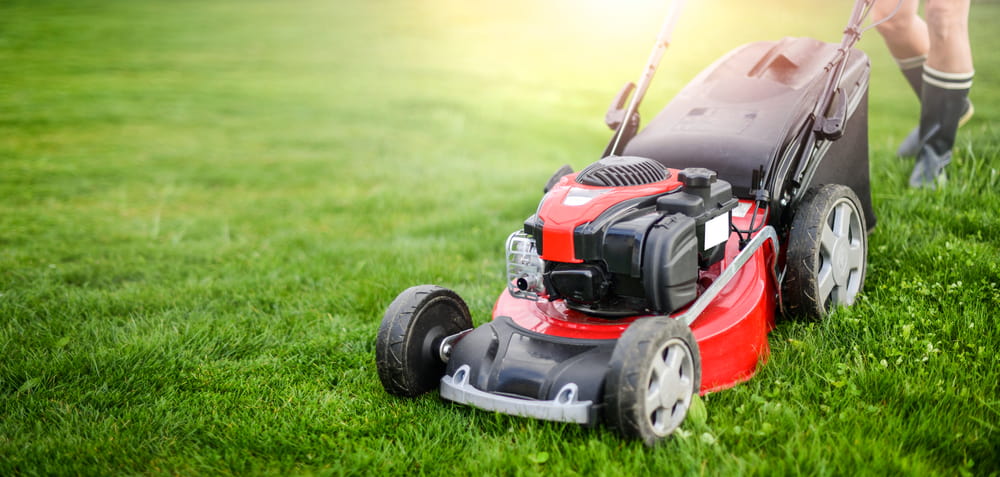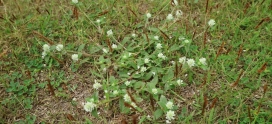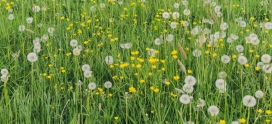
How to maintain your lawn in extreme heat
Calgary is having a record-breaking summer so far with extreme heat warnings and days on end without rain. Although Calgarians are taking advantage of the beautiful weather, the heat can do a number on our lawn. If you’re looking to maintain a healthy lawn during the heat of summer, there are many options for ensuring your yard is in good condition.
Residential lawn care in Calgary follows several steps to care for lawns in the high heat of summer – from watering it frequently and fertilizing daily with an organic option, to using mulch like hay or straw around tree trunks. These 5 tips will help ensure that your lawn looks the very best.
Tip #1 – Don’t cut grass too short
One common mistake made by homeowners and commercial landscape maintenance companies alike is cutting grass too short. When cut at the proper height, however, it’s more resilient against stress and grows stronger roots that produce a healthier plant overall. Different varieties of grass have different growth habits which directly relate to mowing heights. For example, the cool season needs slightly taller blades than the warm season does.
Tip #2: Keep your grass cool
Cutting your lawn just a little higher in the summer can be an effective way to help it cool down. For example, if you usually cut grass at 2.5 inches high, try increasing this height to 3 inches when temperatures are on the rise – for instance, between June and September! This will keep water from evaporating too fast during irrigation cycles (cooler temps tend not to allow as much evaporation), which is important because taller blades of grass have more surface area than shorter ones do.
Tip #3: Limit your lawn’s max water intake
One collective misconception about maintaining lawns in extreme heat is the necessity of overwatering, which can harm your grassroots and turf more than it helps them! A glaring issue with this approach is that after rainfall, people still irrigate their yard, but water only does well if there’s a drought going on or you’ve watered recently. Limit how much water goes into your plants so they grow up nice and healthy for years to come rather than dying from thirst during these scorching summer days/nights!
Tip #4: When in drought and your grass is in doubt…
Mow your lawn only after it has received a good amount of rain or irrigation. This helps the grass to recover and keeps you from hurting the blades with an overzealous mowing job. Grass that is too dry will clump when cut, so keep this in mind next time you are tempted to give Mother Nature’s turf some love!
Tip #5: A sharp blade is key to a healthy lawn
When grass is cut with a sharp mower blade, it will heal faster than if you were using an old dull one. Dull blades can actually tear at your lawn’s tissue and make it more susceptible to stress or disease. Sharper blades help prevent this brown appearance that results from tearing plant tissues, which in turn promotes healthy growth for your lawn!
Tip #6: Don’t bag the grass clippings
Grass clippings are no problem for your lawn if you have a mulching mower. When they’re chopped up by the blades of a mulcher, their nitrogen content is released and put back into circulation to feed future growth in the soil.
It is important, however, when near bodies of water like lakes and streams, that you bag your grass clipping within one or two widths from the edge of these waterways so as not to pollute them with nutrients released through decomposing leaf tissue.
Tip #7: Fertilizing and cultivation is not what your lawn needs.
Homeowners and landscape companies will do what it takes to keep their lawn healthy, but there are a few things you should know. Although the idea of fertilizing might sound like a good idea during mid-summer to maintain vigorous growths, if done too close or at all can have devastating effects on your cool-season grasses because they’re consuming more than they produce right now (due to heat). This means that some fertilizer would promote favorable health for most other types of vegetation – which is always best taken care of as soon as possible.
Wrapping up
To have a healthy lawn, it is important that you maintain year-round health. This will help your grass be more tolerant during the hot summer months and other times of the year. You should fertilize your lawn regularly and water when needed so that they can grow in all types of conditions. Mowing often also helps because if there are leaves on the ground for too long then pests may come into contact with them which could harm or kill off some patches of grass quickly, depending on what kind was planted where originally.
Use this as a guide for when you start to take action on caring for the lawn in the summer heat. Happy mowing!
Book a service with Greener Grass or contact us for all your lawn care needs!

 family owned and operated for 40 years
family owned and operated for 40 years


